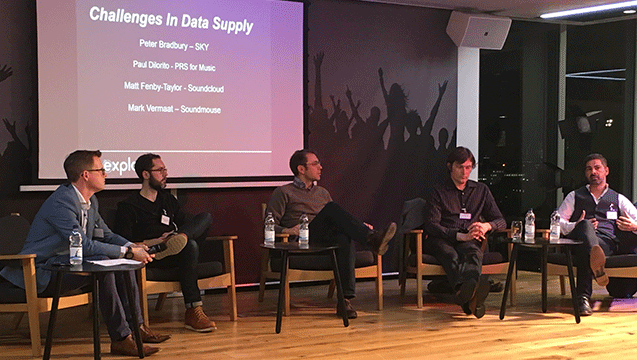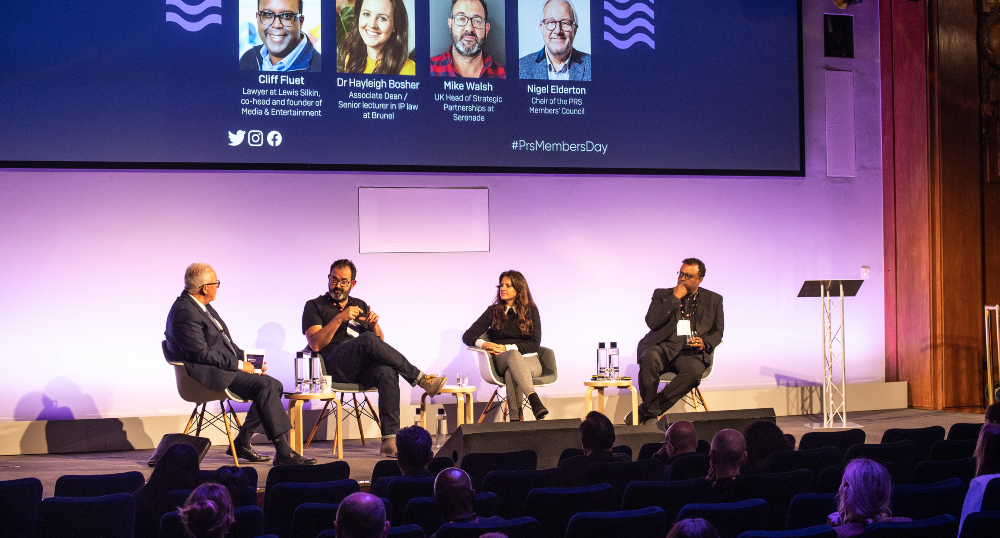Talking at last night’s (Wednesday’s) PRS Explores: Big Data event, he added: ‘Data drives our distributions to members, so proving the accuracy of that data is our number one priority.
‘But we face two issues. One is the explosion in data volumes: we need to continue to provide the service we do at low cost, but we can’t just throw more bodies or more hardware at the problem – that’s not the way to solve it.’
The second issue revolves around the quality of the data the society receives from around the industry, which is often incomplete or contradictory, he explained.
Soundmouse’s Mark Vermaat, also on the panel, agreed the main issue surrounding data processing - and therefore royalty payments - is the amount of conflicting sources which can confuse information on who owns the rights to what.
This alone is ‘one of the biggest problems the music industry faces right now’ he said.
‘There are so many different types of organisations and companies and individuals who have a piece of the pie – it’s like a puzzle that doesn’t fit together.’
Data is an ‘everybody problem’
Last night’s panel, which kicked off the collecting society’s new ‘big data’ series, was moderated by PRS for Music’s director of strategy Graham Davies and also gathered experts from Soundcloud, Rightscom and Soundmouse.
Soundcloud’s Matt Fenby-Taylor told the audience gathered that his company is also grappling with massive data volumes and, while it’s a problem, it’s not insurmountable.
‘The technology exists [to process this],’ he said. ‘The challenge is where data stops moving or becomes wrong, and when there are lots of different people working on it.’
Dilorito then explained how the society’s ICE database is helping define a ‘data hierarchy’ to improve accuracy, and opening up systems to trusted parties within such agreed hierarchies can lead to more accuracy.
'Ensuring data accuracy is about agreeing a hierarchy of authority across writers, publishers, labels, performing right organisations, broadcasters… Where do all these people who handle data sit in this hierarchy and where is the truth that we should be going with? In my opinion, it’s always to get as close to the source as possible.'
However, he stressed: ‘We [at PRS for Music] shouldn’t try to solve this problem ourselves, it’s an “everybody problem”.’
Elsewhere, Soundmouse's Vermaat praised the work of PRS for Music in this field. He said: ‘I think PRS has a trailblazing role in this [process of improving data accuracy] by opening up its database and making it available for audio recognition programmes and data entry.’
PRS Explores is a series of events created to facilitate thought and debate around change in the music industry. The next edition will also concentrate on 'big data'.
Previous sessions have explored blockchain technology and the relationship between the music and gaming industries.





